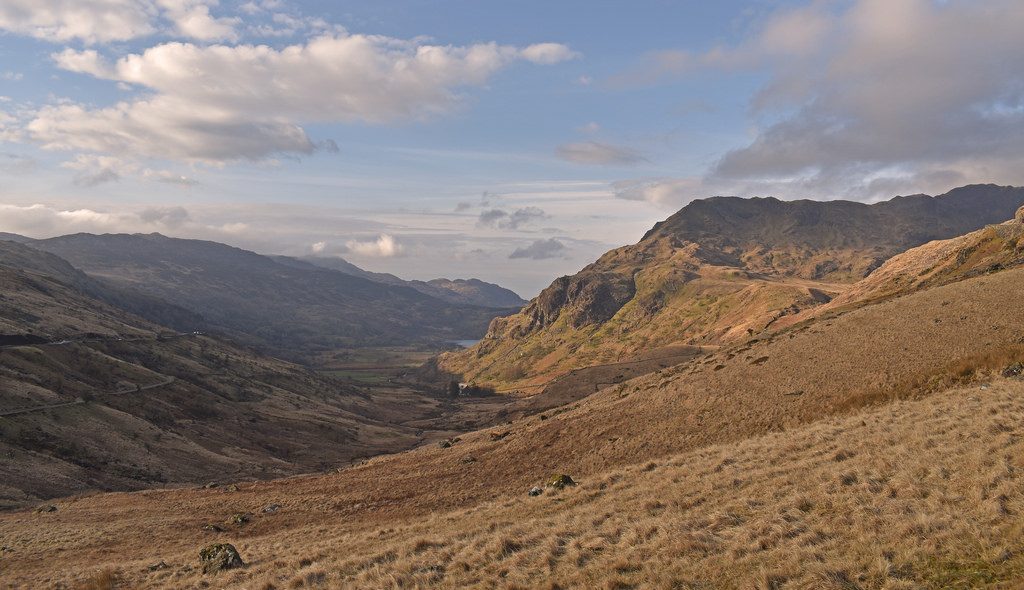7 languages spoken in the UK besides English
Come to the UK and you'll be expecting to hear English, right? Well, you wouldn't be wrong; almost 60 million people here speak English as both a first and second language! It's probably not even a stretch of the imagination to think you might hear a little Welsh. But what other languages are to be found on these beautiful isles that might be unexpected? Let's take a look!
Table of Contents
Snowdonia, Wales, via Flickr
Welsh
Starting with what we know, Welsh, a Brythonic Celtic language, is spoken by some 700,000 people throughout the UK. 110,000 of those are found in England, predominantly in Welsh-speaking communities in London, Birmingham, Manchester, and Liverpool. Welsh is a beautiful-sounding language, famously loved by Tolkien enough to use as part of his basis for Elvish.
Scottish languages
Yes, there is such a language as Scots, a Germanic language that can be split into two separate dialects. In the Scottish Lowlands, Caithness, and the Northern Isles about 1.5 million people speak Scots, while the Ulster dialect is spoken by 34,000 people predominantly in Northern Ireland, though also in Berwick-On-Tweed as well.
Scots is not to be confused with Scottish Gaelic! This is a Goidelic Celtic language spoken by almost 66,000 people, mostly in the Scottish Highlands and the Hebrides. Though Scottish Gaelic communities are also established in numerous Scottish cities as well as London.
Learning a new language? Check out our free placement test to see how your level measures up!
Gaelic
Also known as Irish, this is yet another Celtic Brythonic language of the UK; we do like our Celts! Gaelic is spoken by 95,000 people in total throughout the British Isles, 74,000 of which you will find in the Republic of Ireland itself rather than the UK; if we are going to be specific, the Republic of Ireland is part of the British Isles, not the UK. Irish-speaking communities in the Republic of Ireland are called Gaeltachts and are mostly found along the western coast.
The rest of our Gaelic speakers are scattered throughout some parts of Northern Ireland as well as Glasgow and some of the major cities of England including London, Manchester, and Liverpool.
Shelta
Shelta is a Germanic language spoken by our Irish traveller community, totalling around 90,000 speakers worldwide, including 36,000 throughout the UK. It has other, less kind names like Bog Latin, or far fancier ones such as Caintíotar.
Shelta has been documented as a language since the 1870s, though there is some in print that suggests it has been with us since as far back as 1700. Shelta is almost an unofficial creole language formed from Gaelic, Hiberno-English (English spoken throughout the island of Ireland), and Scots.
Angloromani
This language is essentially an anglicised version of Romani. Some linguists argue that Angloromani is not a language all of its own but rather an evocative vocabulary, but there are around 90,000 speakers throughout the UK that might disagree with that!
This Indo-Iranian based language is thought to date back to at least the sixteenth century, when it was a dialect of the northern branch of Romani, sharing much in common with Welsh Romani.

Cornish Coast, Cornwall via Pixabay
Cornish
Yet another Brythonic language, Cornish is spoken by a tiny 557 people, predominantly throughout the county of Cornwall. Though don't mistake that small number for a language that is dying or unimportant; take a trip to Cornwall and you will see major street signs in both English and Cornish, as well as information at many tourist attractions.
Cornish is a revived language that had once become extinct. Cornish-speakers are fiercely defensive of their language and rightly so! It is a recognised language under the European Charter for Regional or Minority Languages, and is growing in popularity as a second language for those living in the area.
Sign Languages
We have three different sign languages used throughout the UK, all with significant-enough differences to be confusing if you don't use the right one! The major sign language that has the most recognition and material available for learning with is British Sign Language, with 125,000 speakers nationwide.
The exact amount of speakers of both Irish Sign Language and Northern Ireland Sign Language is currently unknown, though Irish Sign Language has a closer relationship with French Sign Language than any of its UK counterparts.

Photo via Pixabay
Multiculturalism
The UK is a big, beautiful mixing pot of every nationality you can think of, meaning there are so many more languages you will hear than just those mentioned above. Go to any major city and you will hear a rich mixture of Urdu, Punjabi, Mandarin, Polish, Spanish, Portuguese, and so many other languages besides.
So though we like to think English is the only language in the world, it isn't true; it isn't even the only language of our own islands!



